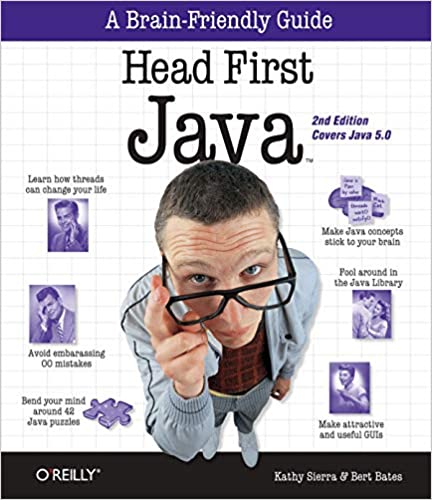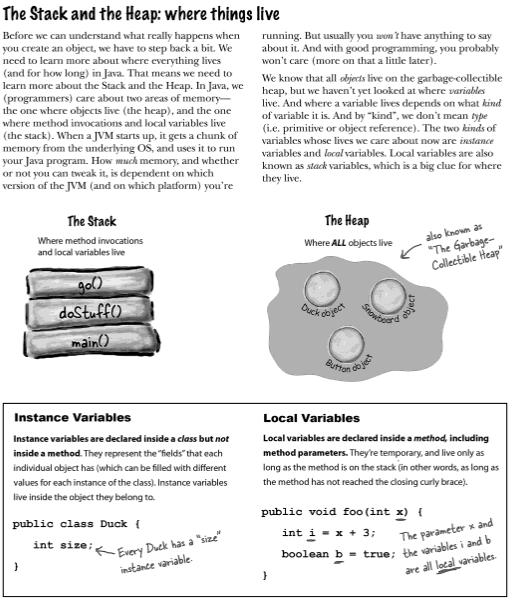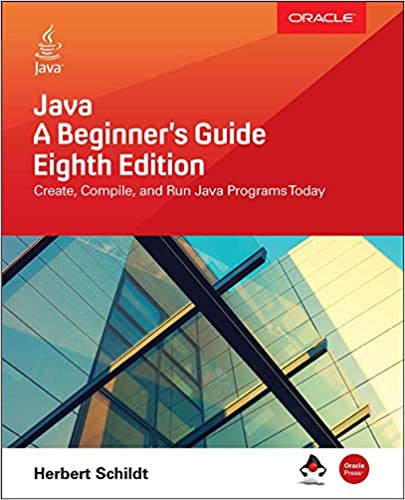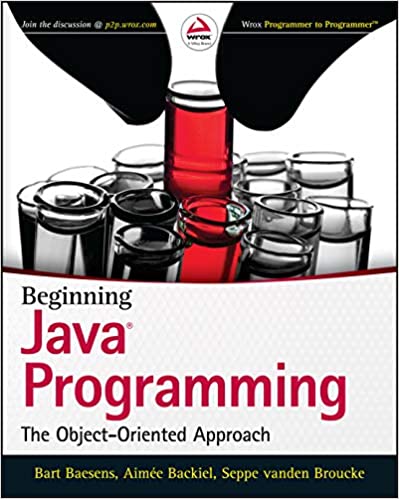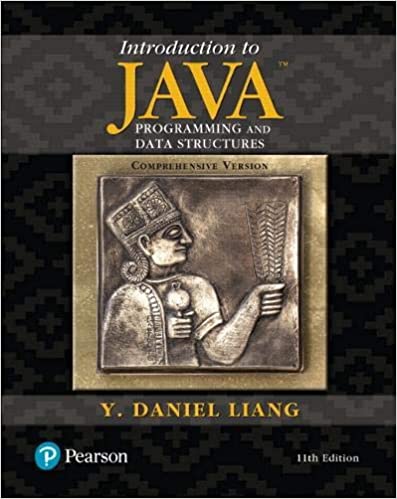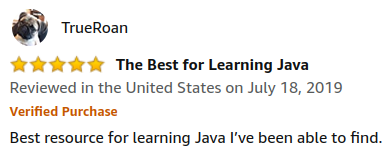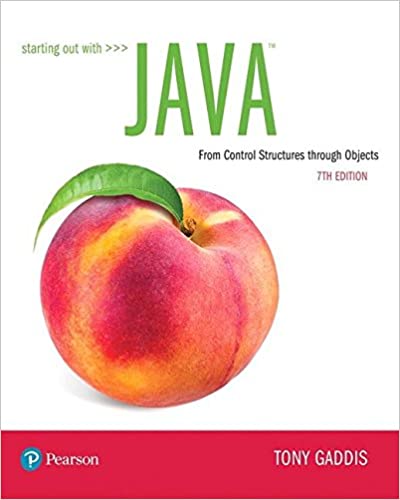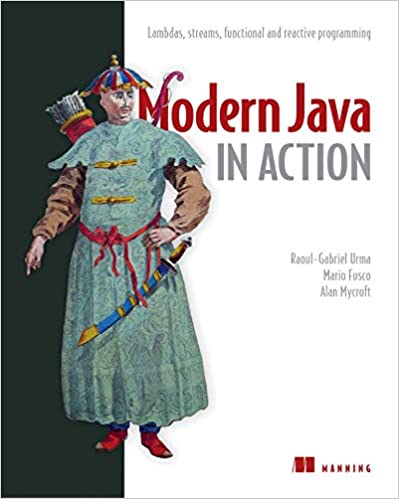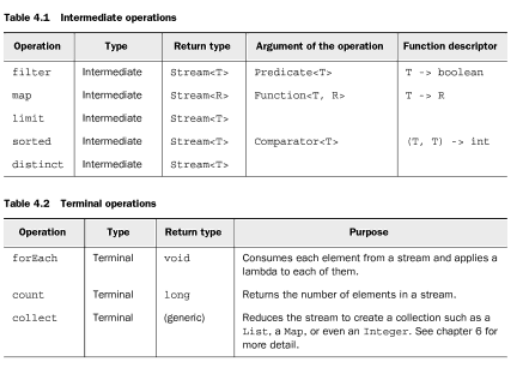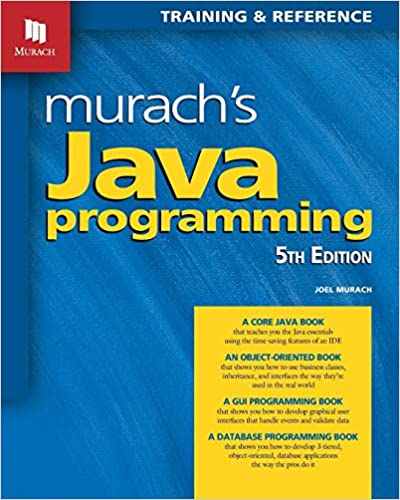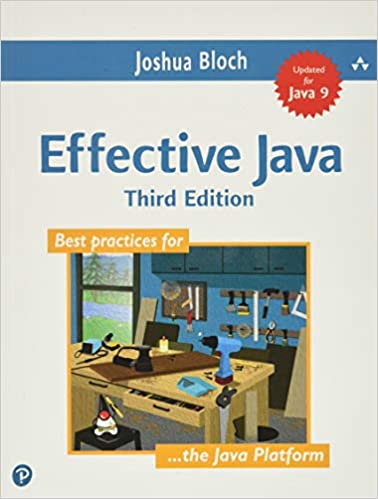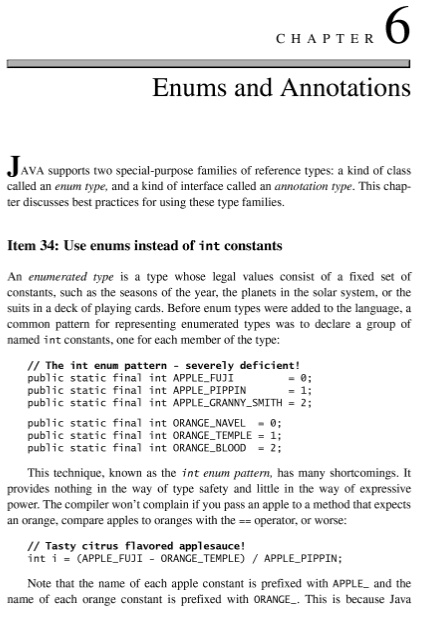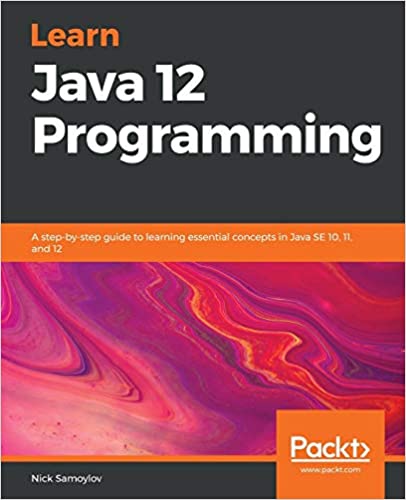Why should I learn Java?
For one, it pays really well. According to Indeed, the average salary for a Java developer in the United States is $103,392.
And secondly, there are lots of Java jobs.
But how do I become a Java developer?
One of the best ways to study Java is with Java textbooks. We’ve actually found a few of the best Java textbooks for you to check out.
And if you’re looking for the best Java courses, we’ve included some of them as well.
This post contains affiliate links. I may receive compensation if you buy something. Read my disclosure for more details.
TLDR: Best Java Textbook
💥 Head First Java, 2nd Edition 💥
Best Java Textbook [9 Textbooks to Learn Java]
1. Head First Java, 2nd Edition
🚨 Ideal for: Java beginners
💥 Major topics: variables, objects, data structures
We think Head First Java by Kathy Sierra and Bert Bates is the best Java textbook.
With its media-rich curriculum, you’ll learn Java how your brain is meant to.
Instead of walls of boring text, you’ll see diagrams, notes and pictures. You’ll also work on plenty of puzzles and read lots of interviews with Java developers.
Looking for the best Java course to take alongside Head First Java? Check out Learn Java from Scratch on Educative.io.
In this complete introduction to object-oriented programming and Java, you’ll learn fundamentals and advanced concepts like:
- variables
- objects
- using the Java library
- data structures
- distributed computing
And beyond.
Because of its teaching style, we think Head First Java is the best Java textbook.
2. Java: A Beginner’s Guide, 8th Edition
🚨 Ideal for: Java beginners
💥 Major topics: multithreaded programming, generics, lambda expressions
Java: A Beginner’s Guide by best-selling programming author Herbert Schildt is the best Java textbook for Java 11.
It’s the official release by Oracle, Java’s parent company.
💡Oracle acquired Java from Sun Microsystems on January 27, 2010.
While not written for complete programming newbies, you’ll learn how to create, compile and run Java programs.
But you’ll also learn some more advanced features such as:
- multithreaded programming
- generics
- lambda expressions
- modules
And more.
After reading this book I learned so much about classes, subclasses, objects, methods, arrays that my confidence as a self taught developer is improving.
– Ervens Delva, Customer
3. Beginning Java Programming: The Object-Oriented Approach
🚨 Ideal for: Java beginners
💥 Major topics: object-oriented programming, GUI programming
Beginning Java Programming by Bart Baesens, et al. is the best Java textbook for taking an object-oriented approach to Java.
The content is based on actual Java courses taught by the authors.
You’ll start with the absolute basics then build up to advanced Java concepts.
Throughout Java Programming, you’ll learn to use Java to access and manipulate external data. You’ll also learn how to make applications accessible to users with GUIs.
In every chapter, you’ll work on exercises that are based on real-world business and educational scenarios.
4. Introduction to Java Programming and Data Structures, Comprehensive Version
🚨 Ideal for: Java beginners
💥 Major topics: object-oriented programming, GUI programming, data structures
Introduction to Java Programming and Data Structures by Y. Daniel Liang is a massive textbook covering all things Java. It’s intended for a first semester computer science course.
With a strong focus on fundamentals, you’ll learn problem-solving concepts and object-oriented programming (OOP).
Looking for a budget-friendly course to learn Java? Check out Learn Java on Codecademy Pro.
Then you’ll learn how to use JavaFX with the GUI to develop cross-platform Internet applications.
Introduction to Java is jam-packed with examples, exercises and detailed solutions.
Best resource for learning Java I’ve been able to find.
– TrueRoan, Customer
🔥 Geena’s Hot Take
If you want to brutalize yourself, check out Introduction to Java. The page count is massive (over 1000 pages) and the content is unforgiving.
This book will probably kick your butt, but you’ll come out waaaaay ahead of the pack.
5. Starting Out with Java, 7th Edition
🚨 Ideal for: Java beginners
💥 Major topics: procedural programming, object-oriented programming
Starting out with Java by Tony Gaddis is a step-by-step introduction to programming in Java. You’ll start by learning about procedural programming. Then you’ll move onto object-oriented programming.
💡 Procedural programming simply means there are a series of computational steps to be carried out.
Every chapter contains real-world examples and plenty of exercises.
In the 7th edition of Starting Out with Java, you’ll learn about JavaFX instead of Swing for the standard GUI library.
6. Modern Java in Action
🚨 Ideal for: intermediate Java users
💥 Major topics: lambda expressions, streams, functional programming
Modern Java in Action by Raoul-Gabriel Urma, et al. has been revised and updated for Java 10. It is recommended you already have Java programming experience before reading this book.
You’ll learn about effective programming with streams and lambdas.
After that, you’ll look at everyday uses for Java. This includes default methods and the Java Module System.
Finally, after looking at concurrency, you’ll explore functional programming and the evolution of Java.
7. Murach’s Java Programming, 5th Edition
🚨 Ideal for: Java beginners
💥 Major topics: primitive data types, validating data, deploy applications
Murach’s Java Programming by Joel Murach has trained thousands of developers. Many could argue that it’s the best Java textbook.
It’s intended to help you learn Java quickly.
Already know another programming language but want to learn Java? Check out the course Introduction to Java as a Second Language on Coursera.
Covering Java 9, it uses a self-paced approached ideal both for beginners and experienced developers.
First you’ll get a basic overview of Java programming. Then you’ll learn how to write your first Java applications.
In the second part of the book, you’ll learn about object-oriented features.
8. Effective Java, 3rd Edition
🚨 Ideal for: Java beginners
💥 Major topics: objects, classes, methods
Effective Java by Joshua Bloch is a Jolt Award Java textbook. This third edition was updated to include Java 7 and Java 8.
Each chapter contains a standalone essay that provides advice and insight into the Java platform. In addition, there are plenty of code examples.
This edition of Effective Java contains techniques and best practices for:
- objects
- classes
- libraries
- methods
And more.
Effective Java is the best Java textbook for Java programmers that learn best with step-by-step instructions.
9. Learn Java 12 Programming
🚨 Ideal for: Java beginners
💥 Major topics: object-oriented, functional and reactive programming
Learn Java 12 Programming by Nick Samoylov is the best Java textbook for gaining insights into object-oriented, functional and reactive programming in Java 12.
First you’ll learn how to install the Java Development Kit. Then you’ll learn about object-oriented programming concepts like:
- polymorphism
- encapsulation
- inheritance
And beyond.
Finally, you’ll learn how to use JavaFX to create a GUI. You’ll also use functional and reactive programming to build scalable apps.
Best Java Textbook: Conclusion
Today we looked at 10 Java resources. Then we picked the best Java textbook: Head First Java, 2nd Edition.
But depending on where you are on your Java journey, we think there’s a Java textbook for almost every Java developer.
Up Next:
- 13 Best Java Books for Beginners [Learn Java Programming]
- 17 Best Java Courses This Year [Beginner & Intermediate Java Courses]
- Programming Interviews Exposed: Complete Review
- 7 Best Ubuntu Books This Year [Plus Linux Bonus Books]
- 9 FAANG Interview Courses You Can’t Afford to Miss Out On [Get Hired at a FAANG]
What is the best Java textbook?
We think Head First Java by Kathy Sierra and Bert Bates is the best Java textbook. With it’s media-rich curriculum, you’ll learn Java how your brain is meant to. Instead of walls of boring text, you’ll see diagrams, notes and pictures to illustrate concepts. You’ll also work on plenty of puzzles and read lots of interviews. In this complete introduction to object-oriented programming and Java, you’ll learn fundamentals and advanced concepts. This includes things like threads, network sockets and distributed programming with RMI. You’ll also learn about variables, objects, using the Java library, data structures and beyond. Because of its teaching style, we think Head First Java is the best Java book.
Is Java: A Beginner’s Guide, 8th Edition worth it?
We think Java: A Beginner’s Guide by best-selling programming author Herbert Schildt is worth it. It’s the official release by Oracle, Java’s parent company. You’ll learn how to create, compile and run Java programs. But you’ll also learn some more advanced features such as multithreaded programming, generics, lambda expressions, modules and Swing. In addition, you’ll get an introduction to Java’s interactive programming tool JShell. You’ll learn all of this an more with a series of hands-on exercises. You’ll also take quizzes at the end of each chapter. Throughout the book, you’ll find example code snippets with commentary to clarify concepts. There are also Q&A sections where you’ll read valuable insights from Java experts.
Is the book Murach’s Java Programming worth it?
We think Murach’s Java Programming by Joel Murach is worth it. It has trained thousands of developers Java programming. Many could argue that it’s the best Java textbook. It’s intended to help you learn Java quickly. Covering Java 9, it uses a self-paced approached ideal both for beginners and experienced developers. First you’ll get a basic overview of Java programming. Then you’ll learn how to write your first Java applications. After that, you’ll learn how to work with primitive data types. Plus you’ll explore how to code methods and validate data. You’ll also learn how to test, debug and deploy applications. In the second part of the book, you’ll learn about object-oriented features such as inheritance, interfaces and polymorphism. After that, you’ll learn more essential Java skills like how to work with arrays and strings. Finally, you’ll learn about GUI and database programming. There’s also coverage of JavaFX, the date/time API, and SQLite databases. Murach’s Java Programming is packed with practical coding examples that provide starting code for applications. And at the end of each chapter, you’ll work on practice problems to solidify concepts.
![best java textbook this year [9 textbooks to learn java asap]](https://realtoughcandy.com/wp-content/uploads/2021/04/new-cover-best-java-textbook-1024x576.jpg)
